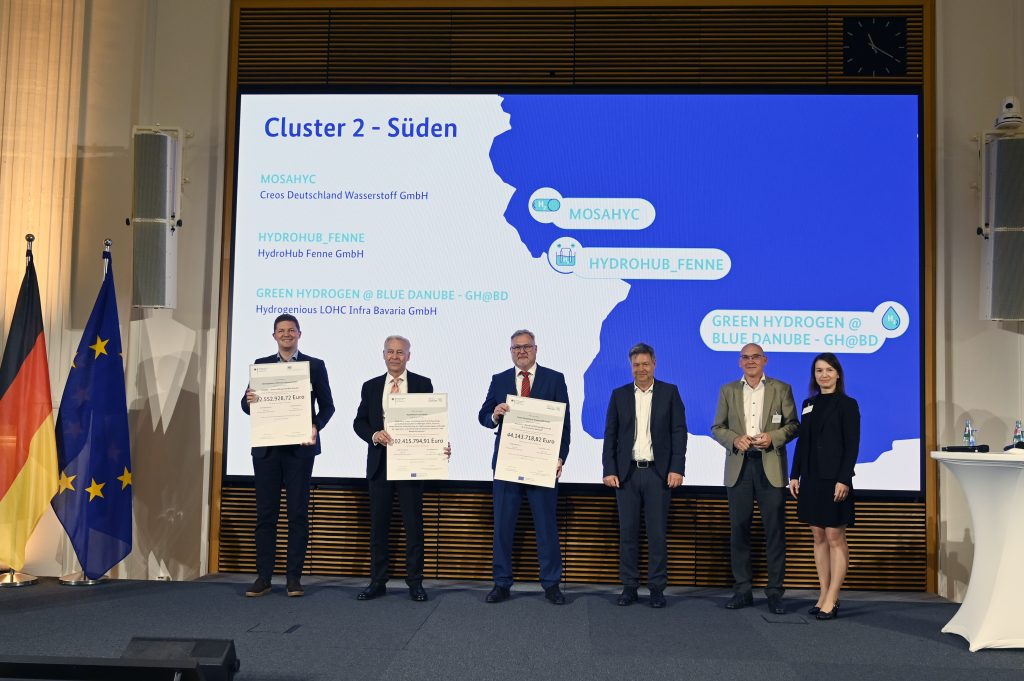Creos Deutschland has received funding from the German Federal Ministry for Economic Affairs and Climate Protection. It has been awarded funding totalling 44 million euros. Around 31 million of this will come from federal funds, with Saarland providing the remainder.
“Following notification by the European Commission, we are delighted to now also have the funding decision in our hands. This means that we can now proceed swiftly with the project for a cross-border hydrogen network in the Franco-German region. The realisation of this pipeline project is a significant step away from large-scale production using fossil fuels towards “green production” with climate-neutral hydrogen. mosaHYc also opens up new possibilities for applications in the context of mobility and the upcoming energy transition in the area of heat supply,” explains Frank Gawantka, Managing Director of Creos Deutschland. This is a significant step towards a sustainable future.
mosaHYc also opens up new possibilities for applications in the context of mobility and the upcoming energy transition in the area of heat supply
“We are thus laying the foundation for the start of the transformation in our region,” says Jens Apelt, Managing Director of Creos and Encevo in Germany.” This is also where the name of the project comes from: mosaHYc stands for moselle-saar-Hydrogen-conversion. “With this model and flagship project, we can significantly support the region on its way to a climate-neutral future. We are grateful for the comprehensive support we are receiving from the federal and state governments, the project organiser, GRTgaz, our cooperation partners and our parent company, Encevo in Luxembourg. The realisation of the project is an important step for the first hydrogen ramp-up in the entire Greater Region,” adds Apelt.
Minister of Economic Affairs Jürgen Barke: “Today is a good day for our location. We have taken an enormous step towards our goal of producing large quantities of climate-neutral hydrogen in Saarland and then transporting it to customers. The substantial contribution that the federal and state governments are making to the projects is crucial for the realisation of a comprehensive hydrogen economy. We recognised the importance of hydrogen as a technological bridge to an economically successful and sustainable future for Saarland at an early stage and have campaigned intensively for all IPCEI projects in Berlin and Brussels. I am delighted that Saarland can now make important contributions to the development of hydrogen technologies.”
The grid operators Creos Deutschland and GRTgaz (France) want to establish a hydrogen pipeline around 90 kilometres long in the Grande Region in cooperation with the energy company Encevo (Luxembourg). To this end, around 70 kilometres of existing pipelines, some of which are no longer in operation, are to be converted for operation with hydrogen, around 50 kilometres of which will be in France. The additional construction of around 20 kilometres of new hydrogen pipelines, primarily between Dillingen (Germany) and Bouzonville (France), will create the first hydrogen network. The pipeline network is scheduled to go into operation in 2027.
mosaHYc initially functions as a stand-alone network: it connects numerous hydrogen production projects in the border region with major hydrogen consumers in Saarland. At the same time, mosaHYc also has the potential to be integrated into German and European hydrogen networks at a later date in order to safely transport and distribute larger quantities of hydrogen to meet increasing demand in Saarland and, in the long term, also to Rhineland-Palatinate.


